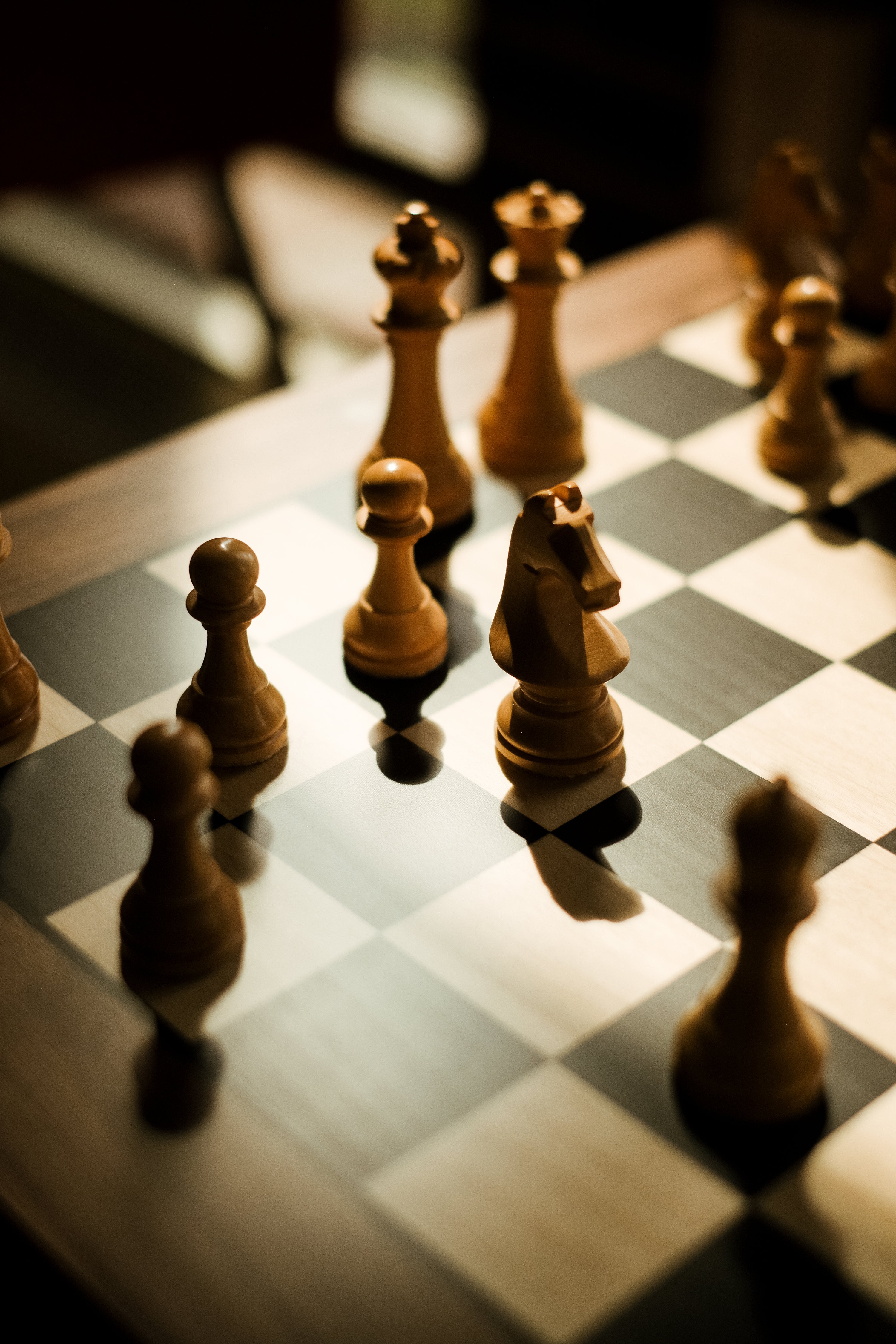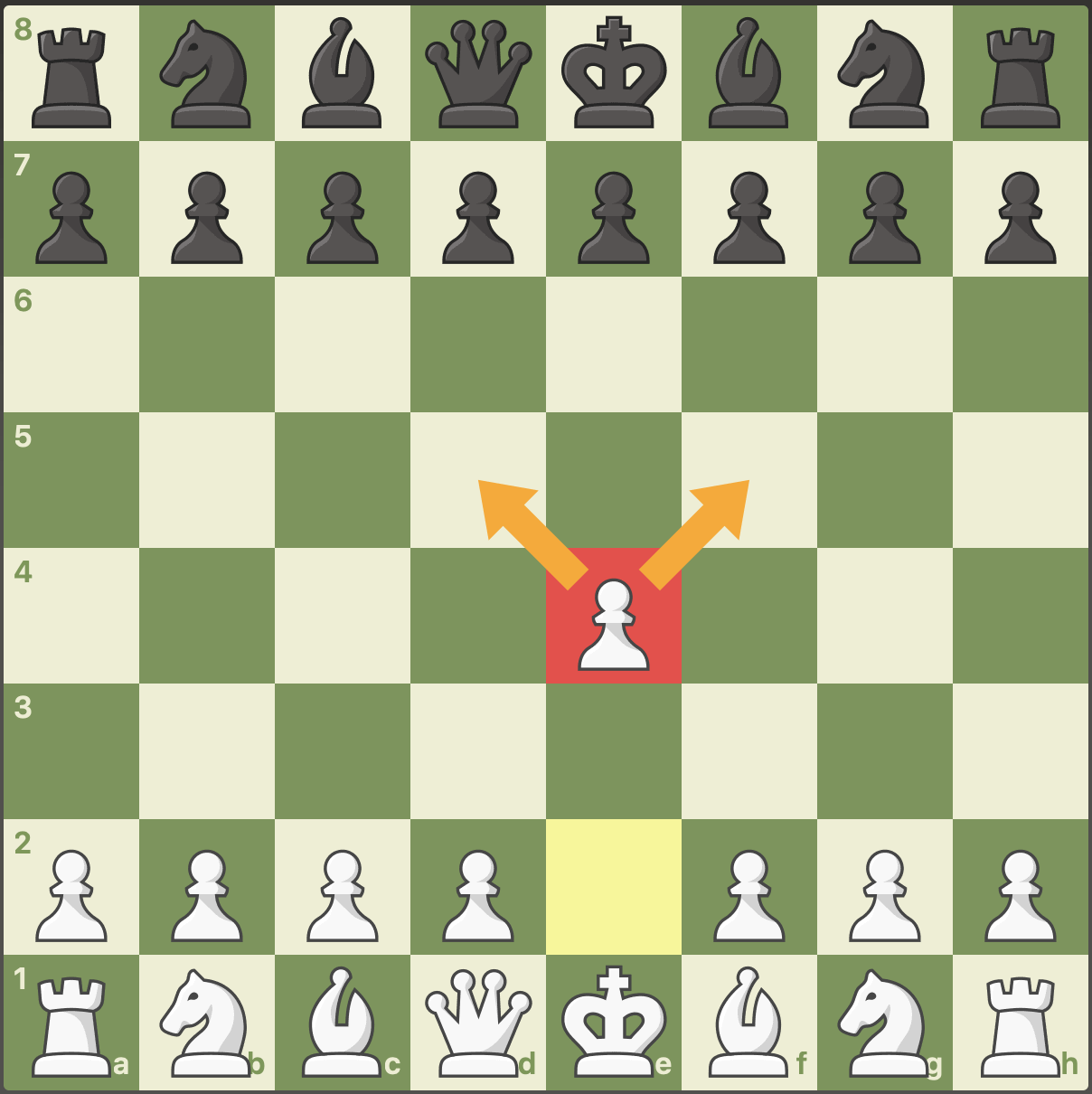Iconic Chess Champions Who Revolutionized the Sport
Wiki Article
Everything about Chess: Discover the Fascinating Background and Strategies Behind the Game
Chess, with its beginnings dating back to 6th century India, has changed greatly over the centuries. This game has actually mesmerized minds worldwide, showcasing the brilliance of legendary players like Garry Kasparov and Bobby Fischer. Recognizing the details of chess, from the movements of each item to important methods, exposes its depth. The inquiry continues to be: what drives the sustaining attraction with this ancient game? Discovering its background and strategies might uncover much deeper insights.The Beginnings of Chess: A Trip With Time
Although the exact beginnings of chess stay unpredictable, historical proof suggests that the game advanced from earlier methods played in India around the 6th century. Referred to as Chaturanga, this very early type of chess featured items standing for infantry, mounties, elephants, and chariots, showing the military techniques of the moment. As Chaturanga spread out with profession paths, it adjusted to different cultures, bring about the production of Shatranj in Persia. This variant introduced new policies and item activities, laying the structure for modern chess.Chess Prodigies: Notable Numbers in the Game's History
Throughout chess history, impressive natural born players have actually arised, shaping the game's landscape and motivating future generations. From famous champions who dominated the boards in their time to modern abilities redefining the restrictions of youth and ability, these players have made enduring marks on the sport. Their tales highlight not only specific brilliance yet also the evolving nature of chess as a competitive venture.Legendary Chess Champions
Chess has been shaped by the sparkle of countless fabulous champions whose contributions have left an indelible mark on the game. Figures like Garry Kasparov, known for his dynamic design and unequaled strategic depth, controlled the chess globe during the late 20th century. Anatoly Karpov, his competitor, showcased exceptional positional understanding and emotional prowess, safeguarding numerous world titles. Bobby Fischer, an American prodigy, revolutionized chess with his exceptional skill and extreme emphasis, finishing in his 1972 World Champion triumph. Furthermore, José Raúl Capablanca's all-natural capability and endgame mastery set new criteria in the very early 20th century. These champions not only mastered competitors but likewise influenced generations, shaping chess into a worldwide phenomenon celebrated for its intellectual roughness and virtuosity.Modern Prodigies
What makes a chess natural born player truly remarkable? The ability to comprehend complex techniques at an astonishingly young age sets them apart. Contemporary chess natural born players like Magnus Carlsen, Fabiano Caruana, and Alireza Firouzja have astounded target markets with their phenomenal ability. Carlsen, becoming a Grandmaster at just 13, redefined assumptions and ascended to World Champion status. Caruana, known for his deep preparation and tactical expertise, has regularly challenged the elite. Firouzja, born in 2003, represents the new generation, integrating creative thinking with relentless ambition. These gamers exhibit a mix of natural ability, rigorous training, and mental perseverance, affecting the game's advancement. Their payments assure that chess stays a dynamic and dynamic self-control, inspiring future generations of gamers worldwide.Comprehending the Chessboard: Parts and Their Movements
The chessboard acts as the battlefield where complex approaches unravel, including a special collection of items, each with distinctive movements and roles. Making up 64 squares arranged in an 8x8 grid, it is home to the king, queen, rooks, knights, bishops, and pawns. The king, the most important item, moves one square in any direction, while the queen, the most effective, can pass through any kind of variety of squares up and down, flat, or diagonally. Rooks relocate straight lines, whereas bishops glide diagonally throughout the board. Knights have an one-of-a-kind L-shaped motion, leaping over various other items. Pawns advance one square yet capture diagonally, with the choice to relocate 2 squares ahead on their first action. Each piece's movement contributes to the intricate dancing of approach and strategies, making the chessboard a dynamic stage for intellectual fight. Comprehending these movements is essential for players aiming to navigate the complexities of the game.
Necessary Methods for Beginners: Tips to Boost Your Game
Mastering pop over to this site the activities of chess pieces lays the groundwork for creating effective techniques. For novices, concentrating on regulating the facility of the board is necessary. This enables for higher mobility and influence over the game. Creating pieces early, look at this web-site as opposed to relocating the same item several times, can aid develop a solid placement.Furthermore, gamers must focus on king safety by castling early, making certain the king is tucked away from dangers. Identifying tactical chances, such as forks, pins, and skewers, can supply benefits in product gain. It is additionally important to plan ahead; preparing for a challenger's moves promotes better defensive and offending play.
Ultimately, maintaining a well balanced approach between aggressive and defensive approaches can protect against unneeded mistakes. By executing these basic techniques, beginners can enhance their gameplay and develop a solid structure for future enhancement in chess.
Advanced Methods: Elevating Your Chess Skills
In the domain name of chess, mastering sophisticated tactics can significantly enhance a player's ability. Acknowledging tactical patterns, understanding endgame techniques, and comprehending opening principles are crucial aspects that raise one's game. These parts not only enhance overall efficiency yet additionally foster much deeper critical thinking.Tactical Patterns Recognition
Recognizing tactical patterns is necessary for elevating chess skills to a greater level. Players that understand these patterns can identify chances for tactical maneuvers, enhancing their possibilities of success. Usual patterns include forks, pins, skewers, and uncovered assaults, each offering critical advantages when implemented properly. Understanding these concepts enables gamers to anticipate their challenger's moves and counter them efficiently. In addition, examining timeless games can disclose just how masters utilized tactical patterns to secure triumphes. Regular practice and analysis of one's very own games can further enhance pattern recognition, enabling players to respond quickly and accurately during matches. Eventually, honing this ability changes the method to chess, connecting the void between amateur and advanced play.Endgame Techniques Mastery
Efficient endgame methods can considerably influence the outcome of a chess match, typically determining the difference in between a win and a draw. Advanced gamers recognize the significance of item control and the usage of pawns in the endgame. Trick methods consist of advertising great site pawns to queens and producing passed pawns that can progress unblocked. Identifying important settings, such as the opposition and zugzwang, is vital for attaining advantageous arrangements. Proficiency of endgame techniques, such as king and pawn versus king scenarios, can transform prospective losses into draws or wins. Players should additionally concentrate on simplifying the setting when ahead, trading items to transform product benefits right into victory. Constant technique and evaluation of endgame settings will certainly elevate a gamer's total chess skills considerably.
Opening Up Principles Understanding
Grasping endgame methods lays a solid foundation for recognizing opening concepts. In chess, the opening stage is essential as it sets the phase for the middle game. Chess. Players ought to focus on control of the facility, establishing items successfully, and making certain king safety and security. Efficient openings commonly include moving pawns to develop central prominence while working with small and major pieces for height activity. The principles highlight stagnating the very same item multiple times without requirement and avoiding very early queen development, which can cause vulnerability. By adhering to these fundamental strategies, players can produce a strong framework that improves their tactical possibilities later in the game. Comprehending these opening up principles is crucial for raising one's chess abilities and achieving success
The Social Influence of Chess: Why It Issues Today
Chess, a game with origins tracing back over a millennium, remains to put in an extensive cultural impact around the world. It goes beyond mere entertainment, functioning as a device for education, crucial thinking, and social communication. Several educational institutions incorporate chess right into their curricula, advertising cognitive growth and critical reasoning amongst trainees. The game likewise fosters inclusivity, uniting diverse areas and encouraging intergenerational connections.Chess has penetrated preferred society, inspiring literature, movies, and also style. Legendary numbers like Bobby Fischer and Garry Kasparov have ended up being cultural icons, highlighting the game's capacity for personal and nationwide satisfaction. In the electronic age, on the internet systems have actually even more democratized accessibility to chess, enabling millions to engage with the game. As society encounters intricate obstacles, chess remains appropriate, providing lessons in perseverance, insight, and strength, consequently enhancing its significance in modern-day culture and day-to-day live.
Regularly Asked Concerns
How Has Chess Influenced Pop Culture and Media?
Chess has considerably affected preferred society and media, showing up in films, literary works, and art. It represents intelligence and approach, inspiring stories and personalities while advertising styles of dispute, competition, and the human experience.What Are the Advantages of Playing Chess for Mental Health And Wellness?

Are There Various Chess Variants Played Around the World?
Yes, various chess variations are played internationally, consisting of Bughouse, Chess960, and Three-check chess. Each alternative presents special rules and methods, supplying gamers with diverse experiences and challenges that differ from traditional chess.Just How Do Chess Engines and AI Effect Modern Chess?
Chess engines and AI greatly improve modern-day chess by supplying advanced evaluation, improving gamer abilities, and affecting strategies. They act as training devices and competition help, transforming just how players approach the game in any way levels.What Prevail False Impressions Regarding Chess Players?
Usual mistaken beliefs about chess players consist of the belief that they are all introverted geniuses, exclusively concentrated on approach. Chess. Actually, gamers vary considerably in character, background, and method, frequently delighting in social communications and diverse rate of interestsReport this wiki page